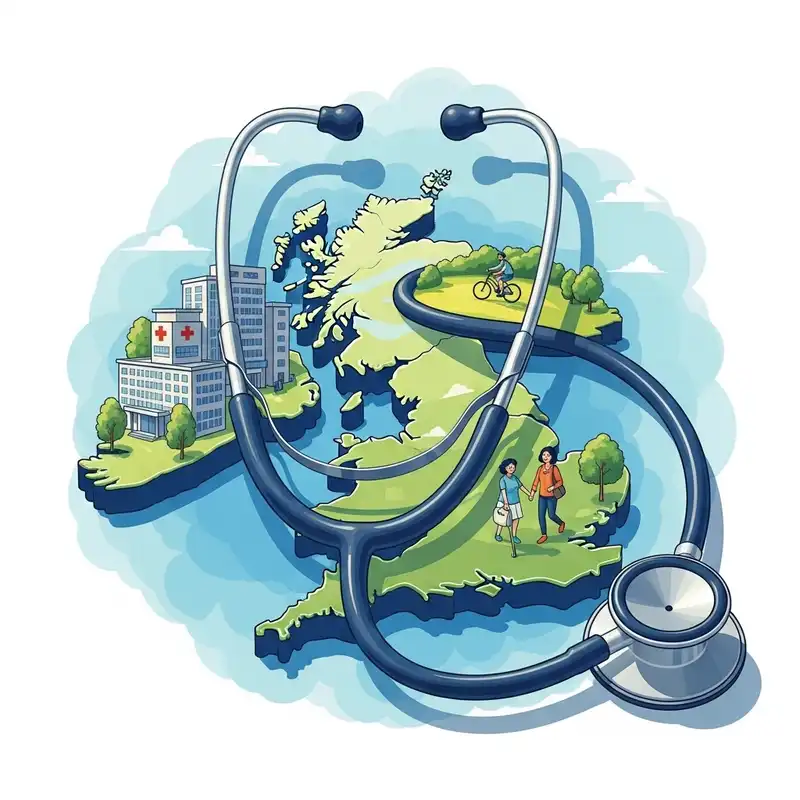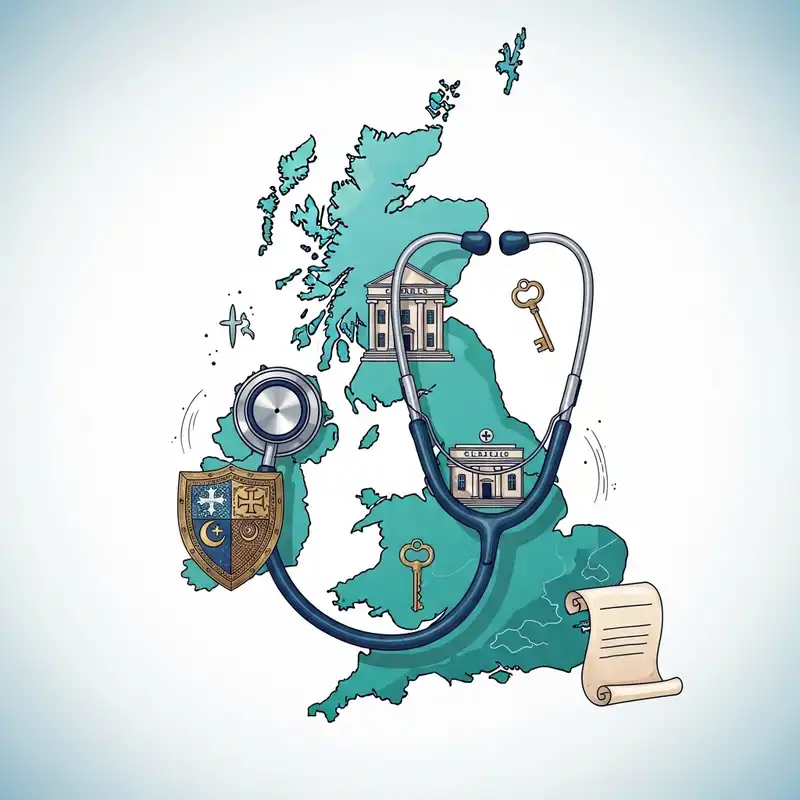TL;DR
Navigating the world of life insurance can feel overwhelming, especially when providers change. In a major market shift, AIG Life Limited was acquired by Aviva in 2024 and rebranded in February 2025 as Aviva Protection UK Limited. New life, critical illness, and income protection policies are now Aviva-branded, while existing AIG Life policies are managed by Aviva.
Key takeaways
- 99% of life claims paid
- 94% of critical illness claims paid
- 92% of income protection claims paid
- Level Term Assurance: The payout amount remains the same throughout the policy term. This is ideal for covering an interest-only mortgage or providing a financial legacy for your family.
- Decreasing Term Assurance: The payout amount reduces over time, broadly in line with a repayment mortgage or other loan. Because the potential payout decreases, premiums are typically lower than for level term cover.
Navigating the world of life insurance can feel overwhelming, especially when providers change. In a major market shift, AIG Life Limited was acquired by Aviva in 2024 and rebranded in February 2025 as Aviva Protection UK Limited. New life, critical illness, and income protection policies are now Aviva-branded, while existing AIG Life policies are managed by Aviva.
This definitive 2026 guide is for existing AIG Life policyholders. We'll explain what the change means for you, review the features of your legacy AIG Life policy, and clarify how your cover, claims, and benefits like Smart Health are now managed by Aviva.
WeCovr reviews AIG Life's legacy products and what the Aviva acquisition means for you
As independent protection specialists, our job at WeCovr is to scrutinise the market to find the best possible cover for our clients. We work with all the major UK insurers, including Aviva, Legal & General, Zurich, and other leading providers. This gives us a unique, impartial perspective on where each provider excels.
AIG Life carved out a strong reputation in the UK for its comprehensive cover, innovative approach to customer wellness, and a solid track record for paying claims. As an existing policyholder, you can be reassured that these high-quality policies are now backed by Aviva, another of the UK's largest and most trusted insurers. Your policy terms and cover remain unchanged.
Let's break down the legacy of AIG Life's products and what you need to know in 2026.
Who Was AIG Life? A Snapshot
AIG Life Limited was the UK-based life insurance arm of the American International Group, a global finance and insurance corporation. Following its launch in 2015 with the acquisition of Ageas Protect, AIG Life quickly established itself as a forward-thinking and reliable provider. In 2024, Aviva acquired AIG Life Limited, and in February 2025 it was rebranded and integrated into Aviva's UK protection business as Aviva Protection UK Limited.
Financial Strength and Trust
When you buy a life insurance policy, you're buying a promise that could be fulfilled decades in the future. The financial strength of the insurer is paramount. Your policy is now underwritten by Aviva, a FTSE 100 company with one of the strongest financial ratings in the industry, ensuring a robust ability to meet long-term financial obligations.
More importantly for UK customers, both Aviva Protection (formerly AIG Life) and Aviva have a demonstrable commitment to paying claims. In its final years as a standalone brand, Aviva Protection (formerly AIG Life) published impressive claims statistics. For example, in 2023, they paid out:
- 99% of life claims paid
- 94% of critical illness claims paid
- 92% of income protection claims paid
These figures, which represented over £235 million paid out to thousands of families, provide crucial peace of mind. This commitment to paying claims is continued by Aviva, which has its own stellar payout record. (illustrative estimate)
Awards and Recognition
The insurance industry recognises excellence through various awards and ratings. AIG Life consistently received high ratings from independent bodies like Defaqto, which scores products based on the quality and comprehensiveness of their features. Many of AIG Life's legacy products hold a 5-Star Defaqto rating, signifying they are among the best in the market.
A Review of AIG Life's Former Core Protection Products
AIG Life offered a complete suite of personal and business protection products. If you are an existing policyholder, your cover will fall into one of these categories. New customers seeking similar products should now look at Aviva's current range.
AIG Life Term Life Insurance
This is the most straightforward form of life insurance. You choose a lump sum to be paid out and a policy term (e.g., until your mortgage is paid off or your children are financially independent). If you pass away during the term, the policy pays out to your loved ones.
AIG Life offered the two main types:
- Level Term Assurance: The payout amount remains the same throughout the policy term. This is ideal for covering an interest-only mortgage or providing a financial legacy for your family.
- Decreasing Term Assurance: The payout amount reduces over time, broadly in line with a repayment mortgage or other loan. Because the potential payout decreases, premiums are typically lower than for level term cover.
Key Features:
- Generous Terms: Cover can run up to age 90.
- Waiver of Premium: This optional add-on covers your premiums if you're unable to work for more than 26 weeks due to illness or injury, ensuring your policy remains active.
- Terminal Illness Cover: Included as standard. If you are diagnosed with a terminal illness with a life expectancy of less than 12 months, AIG Life would pay out the full sum assured early.
Real-Life Example: The Miller Family David and Chloe, both 35, have a £300,000 repayment mortgage and two young children. They want to ensure that if one of them were to pass away, the other could clear the mortgage and have funds to support the children. They take out a joint decreasing term assurance policy from AIG Life for £300,000 over a 25-year term. This is a cost-effective way to protect their single biggest liability. (illustrative estimate)
AIG Life Critical Illness Cover (CIC)
A critical illness diagnosis can be financially devastating, often meaning you have to stop working while facing increased costs for treatment and home adaptations. AIG Life's Critical Illness Cover is designed to provide a tax-free lump sum on diagnosis of a specified condition, giving you financial breathing space.
AIG Life's proposition was particularly strong in this area:
- Comprehensive Definitions: They cover over 80 conditions, including 49 full payment conditions and 38 additional (partial) payment conditions. This is one of the most extensive lists on the market.
- Focus on Core Conditions: They provide enhanced definitions for the most common reasons for claims: cancer, heart attack, and stroke.
- Children's Critical Illness Cover (illustrative): Included as standard at no extra cost, covering children from birth to age 22. It provides a payout of up to £30,000 or 50% of the adult's cover, whichever is lower.
- Advanced Cancer Cover: AIG Life provided cover for 81 types of cancer classified as 'advanced', offering greater certainty at the point of claim.
AIG Life Income Protection (IP)
Often considered the foundation of any financial protection plan, Income Protection (IP) pays a regular, tax-free monthly income if you are unable to work due to illness or injury. It's your financial safety net against the unexpected.
AIG Life's income protection was highly flexible and a strong contender in the market:
- Own Occupation Definition: For most professions, AIG Life offered the 'own occupation' definition of incapacity. This is the gold standard. It means the policy will pay out if you are unable to perform your specific job, not just any job. This is crucial for skilled professionals, surgeons, tradespeople, or anyone in a specialised role.
- Flexible Deferred Periods: You can choose how long you wait before the payments start, from as little as 4 weeks up to 52 weeks. A longer deferred period means a lower premium.
- Choice of Payout Terms:
- Full Term: Pays out until you recover, your chosen retirement age, or the policy term ends.
- Short Term (Limited Payment Term): A more budget-friendly option that pays out for a maximum of 1, 2, or 5 years per claim. This is often sold as 'Personal Sick Pay' and is popular with tradespeople and those in riskier occupations.
- Guaranteed Insurability Options: Allows you to increase your cover without further medical questions at key life events, like getting married, having a child, or getting a mortgage.
Your Value-Added Benefits: What Happens to Smart Health?
A key feature of Aviva Protection (formerly AIG Life) policies was the excellent Smart Health service. The great news for existing policyholders is that you retain access to this benefit, which is now managed by Aviva and known as Aviva Smart Health.
Available to you and your immediate family (partner and children up to age 21) at no extra cost, Aviva Smart Health remains a comprehensive health and wellbeing hub. It is important to note that this is different from Aviva's own "DigiCare+" app, which is for their direct customers.
What's included in Aviva Smart Health?
- 24/7 UK-based Virtual GP: Get unlimited access to a GP by phone or video call, anytime, anywhere. This can save weeks of waiting for an NHS appointment for non-urgent issues. Prescriptions can be sent directly to your local pharmacy.
- Second Medical Opinion: If you or your family member receives a serious diagnosis, an independent network of world-leading specialists can review your case and provide a detailed second opinion report. This can provide clarity, reassurance, or alternative treatment options.
- Mental Health Support: Access up to four sessions of therapy or counselling per condition, per year. This support covers issues like stress, anxiety, depression, and bereavement. In a world where NHS mental health waiting lists are long, this is an invaluable benefit.
- Fitness and Nutrition Plans: Get tailored online programmes to help you achieve your health, fitness, and dietary goals. This proactive support helps you improve your long-term wellbeing.
- Health Check: A yearly online questionnaire that provides a personalised report on your health and suggests areas for improvement.
The value of Smart Health cannot be overstated. It provides tangible, everyday benefits that can improve your quality of life and potentially prevent serious health issues from developing. Your access to this service continues seamlessly under Aviva's management.
Managing Your Policy and Making a Claim with Aviva
Your Aviva Protection (formerly AIG Life) policy terms have not changed, but the company managing your policy has.
Making a Claim
Aviva is now responsible for handling all claims on former Aviva Protection (formerly AIG Life) policies. Aviva has a very strong reputation for fair and efficient claims handling, so you can be confident that your claim will be processed with sensitivity and professionalism. The process typically involves:
- Contacting the Aviva claims team (using the details provided on your policy documents or their website).
- Completing the necessary claim forms.
- Providing supporting evidence (e.g., a death certificate or medical reports).
The Aviva Smart Health service, particularly the bereavement and mental health support, can also be a valuable resource for families during a difficult time.
Specialist Cover from Aviva (formerly AIG Life): For Business Owners and High-Net-Worth Individuals
AIG Life's expertise extended beyond personal protection into the more complex world of business and estate planning. If you hold one of these specialist policies, your cover remains in place and is now managed by Aviva.
Key Person Insurance
What would happen to your business if your top salesperson, genius developer, or even you as the director were suddenly unable to work due to death or critical illness? Key Person Insurance is a policy taken out by the business on the life of a crucial employee. The payout goes to the business to cover lost profits, recruit a replacement, or repay loans. AIG Life's life and critical illness policies are well-suited for this purpose.
Executive Income Protection
This is a form of income protection paid for by a company for its directors or key employees. Unlike a personal policy, the premiums are typically a tax-deductible business expense, and the benefit is paid to the company, which then distributes it to the employee via PAYE. It's an excellent way to attract and retain top talent while protecting the business. Aviva (formerly AIG Life) offers strong Executive IP products with high benefit limits.
Gift Inter Vivos & Inheritance Tax (IHT) Planning
If you gift a significant asset (like property or a lump sum of cash) to someone, it may still be considered part of your estate for Inheritance Tax purposes if you pass away within seven years. This can leave your loved ones with an unexpected tax bill.
A Gift Inter Vivos policy is a special type of life insurance designed to cover this potential liability. It's essentially a term assurance policy where the sum assured decreases over seven years, mirroring the reducing IHT liability. Aviva (formerly AIG Life) is one of the providers that offers solutions for this niche but vital area of estate planning.
Our Verdict: The Legacy of Aviva Protection (formerly AIG Life) and What it Means for You in 2026
Aviva Protection (formerly AIG Life) was a top-tier contender in the UK protection market, known for robust policies, comprehensive definitions, and the excellent Smart Health service.
As an existing policyholder, you can be confident that your cover remains in excellent hands. Aviva is one of the UK's largest and most financially secure insurers, with an equally strong commitment to customer service and paying claims.
Key Takeaways for Existing Aviva Protection (formerly AIG Life) Customers:
- Your Cover is Secure: Your policy terms, cover amount, and premiums are unchanged. Your protection is now backed by Aviva.
- You Keep Smart Health: You and your family retain access to the full suite of Aviva Smart Health services (formerly AIG Life Smart Health).
- Claims are Handled by Aviva: All new claims on your policy should be directed to Aviva's claims department.
While new customers will now be looking at Aviva's direct product range, legacy Aviva (formerly AIG Life) policyholders continue to benefit from the high-quality features they originally signed up for, with the added reassurance of being part of one of the UK's biggest insurance families.
If you are looking for new or additional cover, our expert advisers at WeCovr can provide impartial advice, comparing Aviva's current offerings against all other leading providers to find the best policy for your needs today.
What's more, we believe in supporting our clients' wellbeing in every way we can. As a WeCovr client, you'll receive complimentary access to our exclusive AI-powered calorie and nutrition tracker, CalorieHero. It’s our way of going the extra mile, helping you stay on top of your health goals every single day, in addition to the fantastic benefits provided by your insurance policy.
Frequently Asked Questions (FAQs)
Does Aviva (formerly AIG Life) life insurance pay out?
My Aviva Protection (formerly AIG Life) policy is now with Aviva. Will it still pay out?
I have an Aviva Protection (formerly AIG Life) policy with a pre-existing medical condition noted. Is that still valid with Aviva?
Will my Aviva Protection (formerly AIG Life) insurance premiums go up now that Aviva has taken over?
What is Aviva Smart Health and do I still get it for free?
How long does a claim on my former Aviva (formerly AIG Life) life insurance policy take now?
What is the difference between Aviva Smart Health (for Aviva (formerly AIG Life) customers) and Aviva DigiCare+?
Do I need to do anything with my Aviva Protection (formerly AIG Life) policy now it's with Aviva?
Sources
- Office for National Statistics (ONS): Mortality, earnings, and household statistics.
- Financial Conduct Authority (FCA): Insurance and consumer protection guidance.
- Association of British Insurers (ABI): Life insurance and protection market publications.
- HMRC: Tax treatment guidance for relevant protection and benefits products.
































